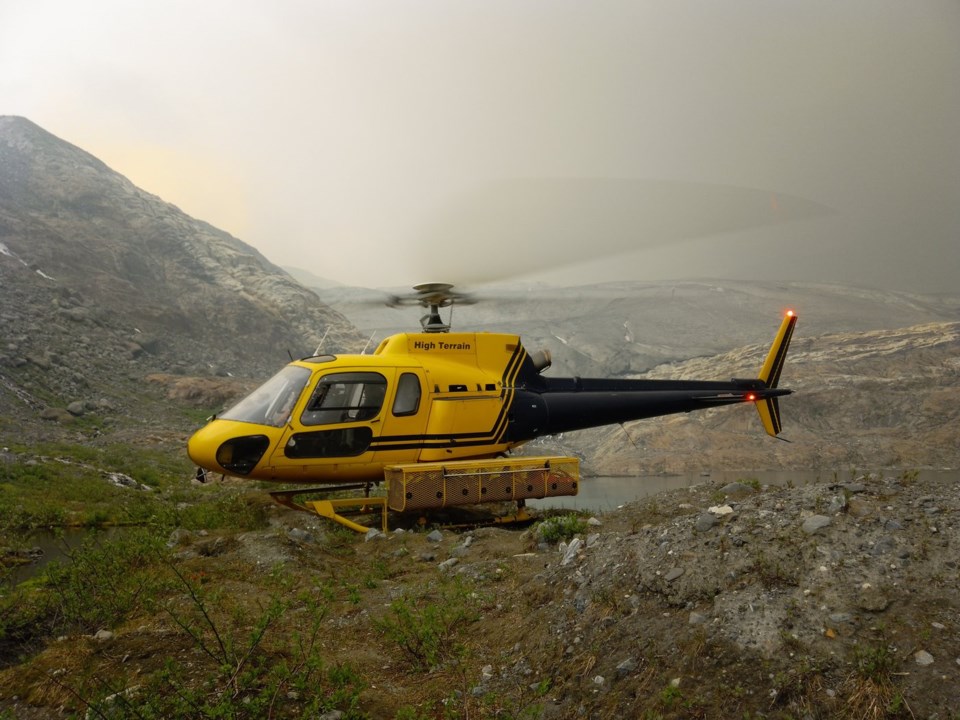Laurence Desjardins says the wind was loud enough to keep her awake through the night as white ash fell around the tent where she was camping with friends on a glacier in B.C.'s West Kootenay region.
They knew they had to leave as quickly as possible.
"But it was nighttime, so we thought, let's wait to have a bit of sun and then we will reassess and leave," she said.
"But then the sun just never came. Even at 5:45 a.m. it was super dark, because of the smoke we've been told. And the ashes were (now) red. It was like fire ashes."
The group of four friends are home after an unexpected change in the wind allowed them to be pulled off the Macbeth Ice Fields, northeast of Kaslo, B.C., on Thursday, in what was a challenging helicopter rescue as wildfires burn in the region.
Desjardins said in an interview on Monday that the group of experienced hikers had planned a multiday trip and were given the OK that the roads were open.
"The air was kind of thick, but we could still easily breathe and talk. So, we were like, 'OK let's go, let's continue.' When we arrived at the glacier, it was still OK. We had dinner outside. We set up our camp," she said.
They found out the road was closed hours after they entered, she said.
When it became clear the next morning they would need to be rescued, they used the SOS feature on an iPhone to send out their location.
Mark Jennings-Bates, with Kaslo Search and Rescue, said the SOS feature gave rescuers the women's precise location, which was key in very challenging circumstances.
"So, the most direct route would have taken us up a valley that was completely engulfed in flames and smoke," he said, noting that the fire was burning from the valley bottom to the tops of the peaks.
"We couldn't go over it, we couldn't go higher, we couldn't go through it," he said.
Instead, The pilot was able to find a route in from the north which still involved going over some burning areas but allowed the helicopter to pick up the women near the edge of an alpine lake.
"And then finally, when we got to the lake, it was a little bit tricky to land the helicopter, because a lot of different winds that were coming from different directions," he said.
"So, I would say he did a stellar job in getting in there. Which is great. That's what we hope the pilots can do."
The pilot would go on to make the trip a second time to pick up rescuers who were initially left behind to make room for the hikers in the helicopter.
Jennings-Bates said the women were prepared for the hike they had planned and had taken important steps like packing enough food, dressing appropriately and talking to locals before they left.
"They sort of got a check in all the boxes. It was just an unfortunate day," he said.
Desjardins said the friends were emotional as they were being flown out of danger because they could see trees around the trail they had hiked in on had been burned.
"The real heroes of this story are the search-and-rescue team. These guys are doing this unpaid, on their time … and they were just incredible," she said.
"I really felt like a kid looking up at superheroes or something. They were incredible."
This report by The Canadian Press was first published July 29, 2024
Ashley Joannou, The Canadian Press

